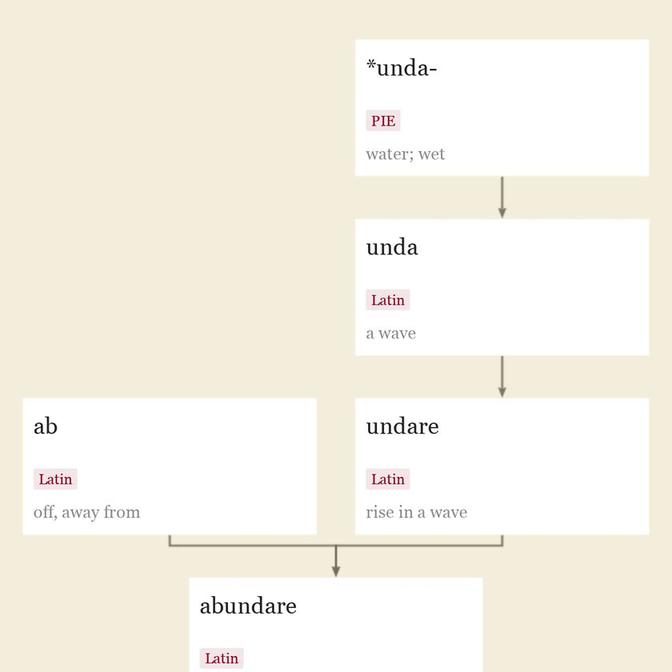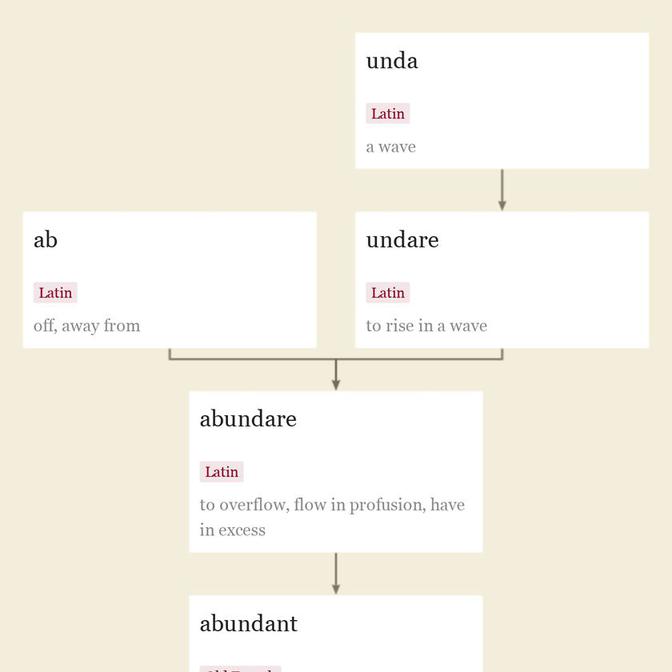abounding (adj.)
1630年代,“富裕的”,现在分词形容词来自 abound。1680年代记录了“字面意义上的“溢出”的含义。相关: Aboundingly。比较 abundant。
abounding 的相关词汇

“be in great plenty,” 早在14世纪就出现了,源自于古法语 abonder “丰富,充足,聚集成大量”(12世纪),源自于拉丁语 abundare “溢出,泛滥”,由拉丁语 ab “离开,远离”(见 ab-)和 undare “波浪翻涌” 组成,源自于 unda “波浪”(来自于 PIE *unda-,是词根 *wed-(1)“水; 湿润”的鼻化形式)。相关词汇: Abounded; abounding; abounder “拥有丰富或财富的人”(1755)。
英语似乎总是使用 -ou- 拼写,尽管在中古英语中有时会添加一个非词源性的 h-。古法语 abonder, abondance 中的元音是梅洛文王朝时期拉丁手写的一种用法,用 -o- 代替古典拉丁语的 -u-,试图识别自古典时代以来演变的音。在法语中,这种音 eventually 被 -ou- 代表。比较法语 tour “塔”,来自于古法语 tor,源自于拉丁语 turris; court(名词),来自于古法语 cort,源自于拉丁语 curtus; 法语 outre 来自于拉丁语 ultra 等。然而,在鼻音前仍然保留 -o-(如 nombre 来自于 numerus, monde 来自于 mundum 等)。

"大量存在,丰富的",14世纪晚期,来自古法语 abundant,直接源自拉丁语 abundantem(主格 abundans)"溢出的,充满的; 富裕的,丰富的",是 abundare 的现在分词,意为"溢出,大量流动,过剩"(见 abound)。相关词: Abundantly。